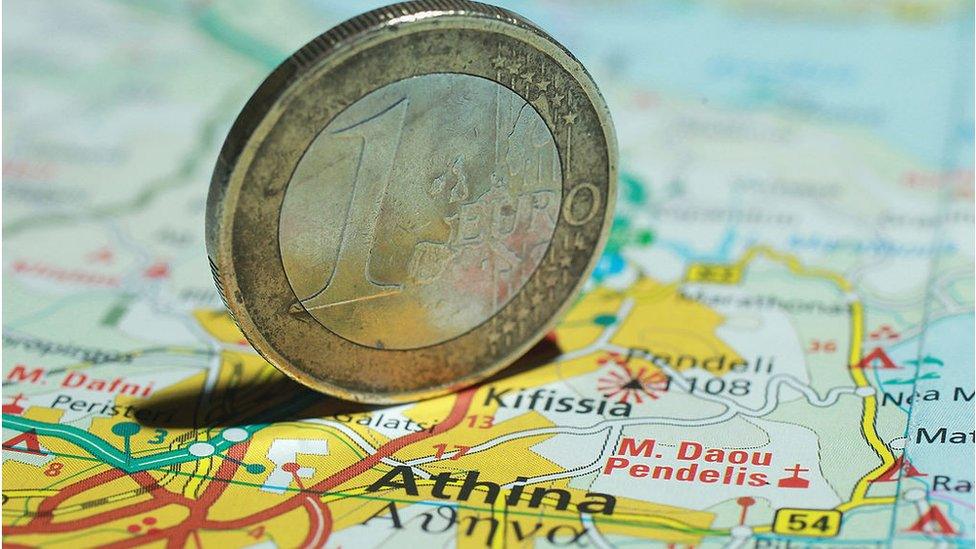Crossing Divides: Chatty cockroach gets Greeks talking on Athens streets
- Published
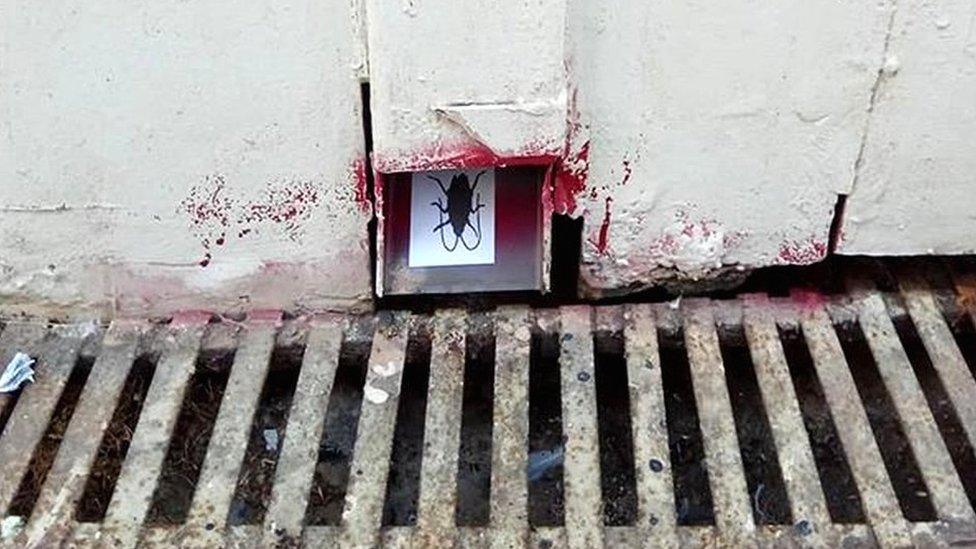
This is the image confronting Greeks from an Athenian drain
"Hello, I live in the sewers of Athens," says the cockroach. "Yes, me too," says an Athenian walking past, apparently unfazed by the idea of an insect talking to him from a drain.
Little does he know that, only a few feet away, artists Myrto Sarma and Dimitra Trousa are crouching over a tiny microphone, impersonating the cockroach in a voice they have rehearsed over and over.
The artists are delighted the man is engaging with their insect, explaining how his life has changed over the past decade. He was recently made redundant and has struggled to support himself ever since.
"It's not nice up here any more," he complains, speaking into the drain. "I think you're better off staying down there."
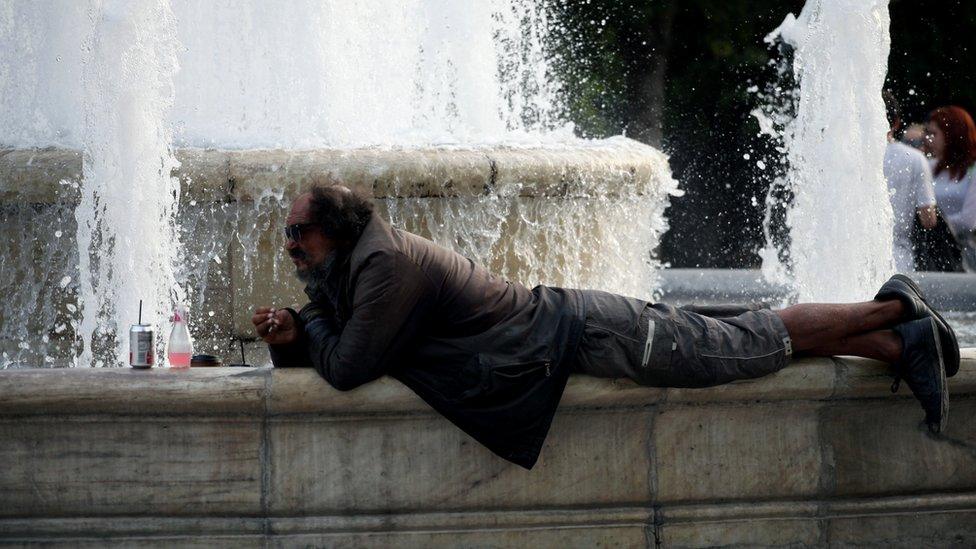
Life in Athens during the economic crisis (file pic)
Twenty-eight year-old Myrto and Dimitra, 27, met in 2016 when they moved back to Greece after studying abroad. They then began to collaborate on creative projects.
Why imitate a cockroach?
After almost a decade of financial crisis in Greece, the pair say many Greeks appear to have given up debating with one another or believing that they can make a difference.
So they wanted to see if something as surreal as a talking cockroach would get people speaking again.
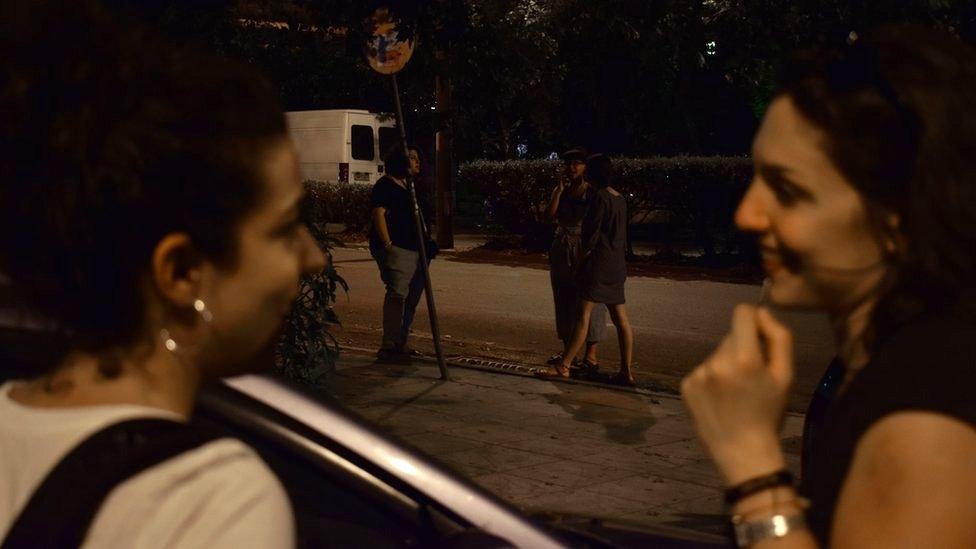
Myrto and Dimitra (foreground) want Greeks to remain hopeful about the future
Although the Greek economy is slowly growing, the consequences of the crisis linger on.
After strict austerity measures that slashed wages and increased taxes, Greeks are still struggling with high levels of unemployment. Recent studies have also shown an increase in depression and a lack of solidarity with others.


The aim of the art project was to help get these issues out in the open.
Inspired by Kafka
"So many people feel paralysed, just like Gregor Samsa in Franz Kafka's book The Metamorphosis," says Myrto, explaining how she sits and observes people staring at their feet as they walk.
"People aren't talking to each other any more. And that's having a huge impact."
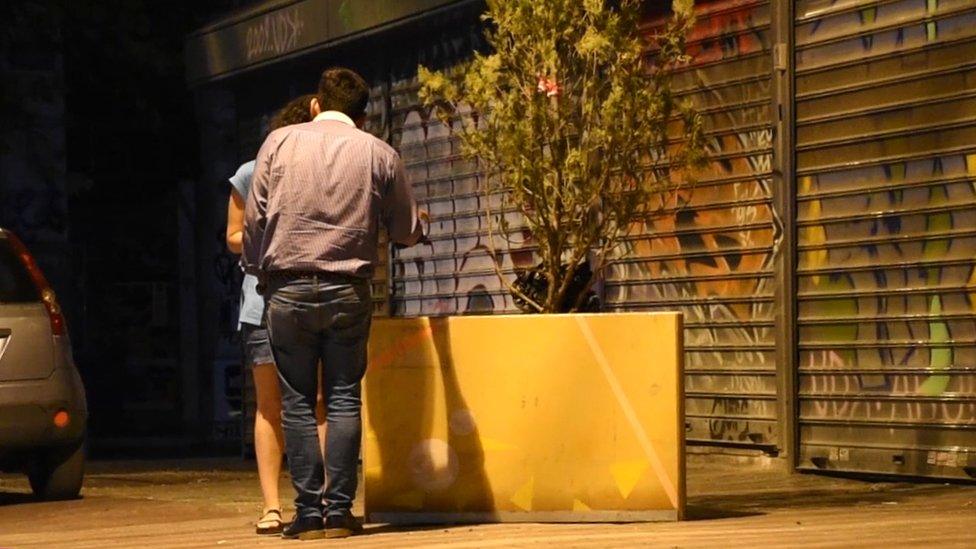
Athenians are encouraged to engage in conversation on the streets
The original novel, written in 1915 by a sleep-deprived and overworked Kafka, is what gave the pair the idea for their project and the artist collective they founded - ReCompulsive Behaviours.
"Gregor, who wakes up transformed into a cockroach, is totally prevented from changing his reality," says Myrto.
The pair say many Greeks feel whatever they do won't make a difference, which is why they need to imagine a better life and discuss with others how to attain it.
This where the cockroach comes in, with the question: "If everything was perfect, what would that look like?"
The response was in not being afraid anymore, with less stress in the world and being able to earn a living and pursue one's dreams.
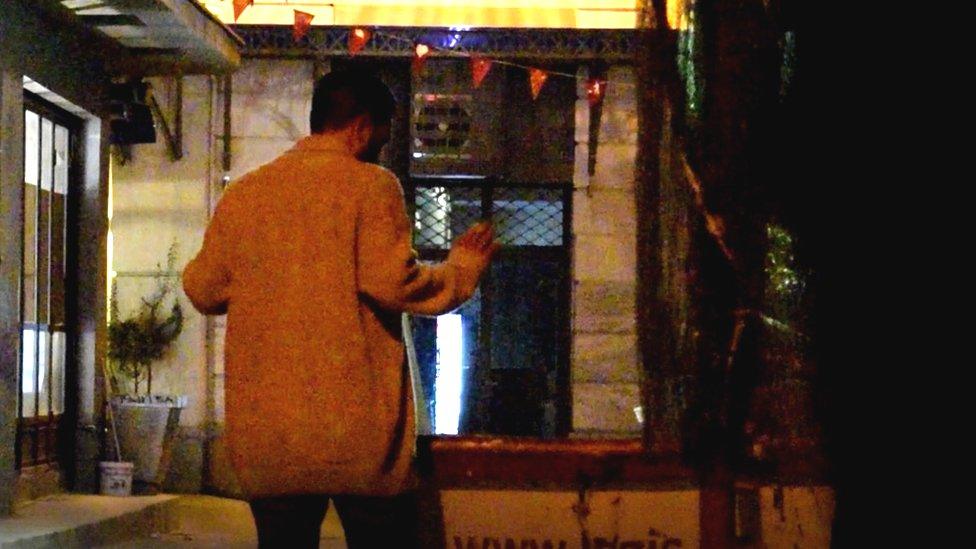
A man is caught unawares by the cockroach
"Our perfect worlds are not so radically different," says Dimitra. "Everything is possible, but the barriers that exist - we create them ourselves."

BBC Crossing Divides

A season of stories about bringing people together in a fragmented world.

Creating 'bubbles' for debate
Both artists were keen for their "performance" not to have a physical impact on the public spaces they chose; for their art to be invisible and to create a new atmosphere on the streets.
They wanted bubbles where people were encouraged to speak to one another, despite being strangers.
The aim was for this "alternative reality" to spread from neighbourhood to neighbourhood. And it has.
They started up conversations between the cockroach and Athenians, then got individuals to continue debates with other passers-by - about politics, the economy and the environment.
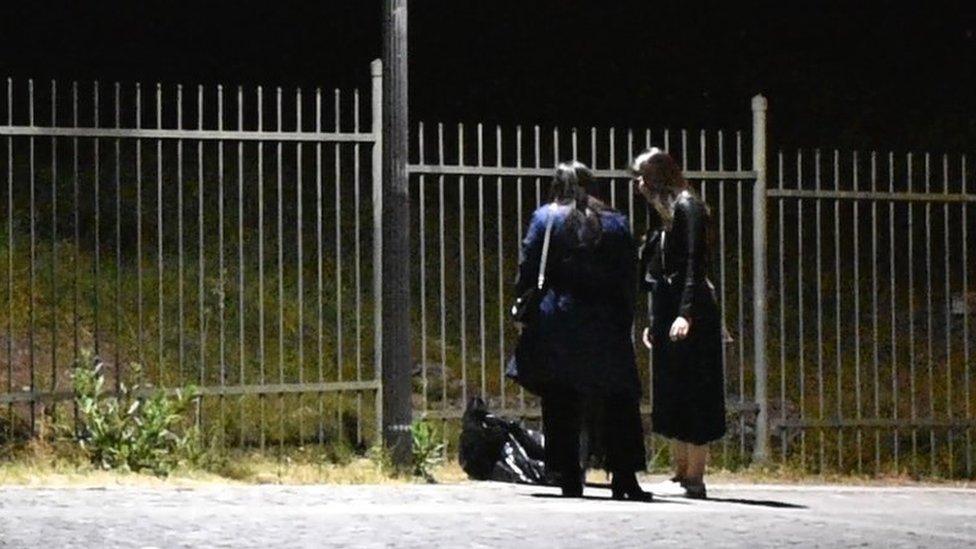
The artists chose specific street locations where they could be discreet
"We felt if you first spoke to a cockroach… after that you probably wouldn't feel weird talking to a stranger stood next to you," says Myrto. "And who knows where that conversation might take you?"
One conversation that began between the cockroach and a shopper about the controversial naming of Greece's neighbour, North Macedonia, spilled out into one of Athens' busiest high streets.
Eventually the cockroach was forgotten about, as a small group gathered to debate amongst themselves.
How Greeks lost their voice
Myrto believes a strange silence descended upon Athens after a 2015 referendum in which voters had to choose whether or not to accept stringent bailout conditions proposed by the European Commission, European Central Bank and International Monetary Fund.
Even though 61% of Greek voters chose to reject the conditions, they were implemented nonetheless.
Greek bailout: Five numbers that reshaped the country
"People felt they hadn't been listened to and stopped engaging," she says. "They just became more and more angry inside, and more polarised in their views."
"But if you're forced to explain things to a cockroach who knows nothing about the current situation, you have to start with the facts. It's a device that actually forces people to take a step back, explain things more simply and with more balance."
With an election due at the beginning of July, these two women feel more than ever that the cockroach must not give up in its quest to keep people engaged, active and hopeful.
"Tensions in Athens can get so high. People are quick to blame others - refugees, migrants, the left, the right.
"In a way, the cockroach is there as a reminder of the human values we sometimes forget: kindness, humility, integrity. We are human, lest we forget - not cockroaches."
- Published5 May 2019
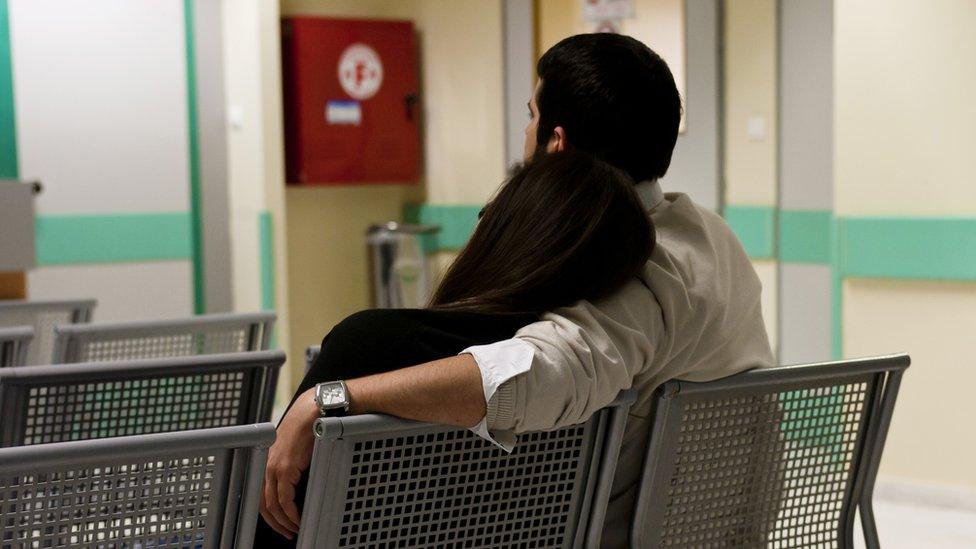
- Published13 March 2019
